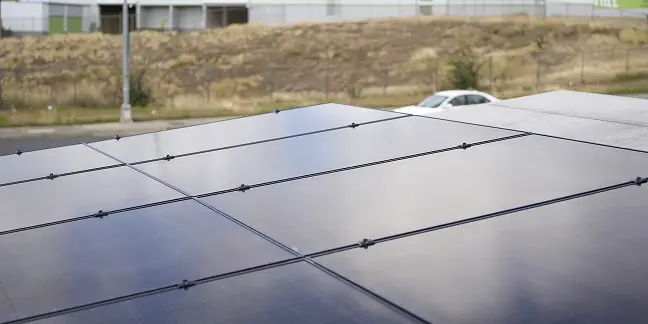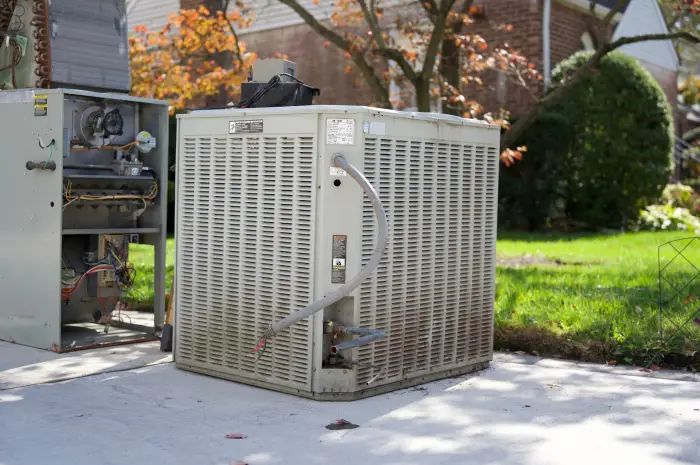Solar panels are a long-term investment in energy efficiency, but their performance depends on several factors. Dust buildup, improper placement, outdated components, and poor system maintenance can all reduce energy output. Many homeowners and businesses assume that once panels are installed, they will continue to function optimally without intervention. In reality, regular maintenance, monitoring, and professional assessments are essential to ensuring maximum efficiency.
Several strategies can help improve solar panel performance, but the most effective solutions involve expert care and system upgrades. Knowing when to schedule professional service, invest in newer technology, or adjust energy usage can make a significant difference in overall output.
Regular Cleaning and Maintenance
Dirt, dust, and debris can block sunlight and reduce solar panel efficiency. While rain helps rinse off some buildup, it is not always sufficient, especially in areas with heavy pollution, pollen, or bird activity.
Routine professional cleaning prevents:
- Sunlight obstruction from dirt and grime, which can lower output by up to 25%.
- Damage from improper cleaning, as using abrasive materials or high-pressure water can harm the panel surface.
- Missed maintenance issues, since an inspection during cleaning can catch early signs of wear, corrosion, or loose wiring.
For most systems, cleaning twice a year is recommended. However, locations with more dust or tree coverage may require more frequent service. A professional cleaning team ensures the job is done safely and effectively without risking damage to the panels or personal injury.
Optimal Panel Placement and Adjustments
The position and angle of solar panels determine how much sunlight they receive throughout the day. If panels are not properly aligned, energy production may be lower than expected.
Key placement considerations:
- Orientation: In the Northern Hemisphere, south-facing panels typically receive the most sunlight.
- Tilt Angle: The best tilt depends on geographic location and seasonal variations. Some systems benefit from seasonal adjustments.
- Shading: Trees, buildings, and other obstructions can significantly impact efficiency, especially as surrounding landscapes change over time.
For those experiencing lower-than-expected energy output, a professional assessment can determine whether repositioning or angle adjustments would improve performance. In some cases, installing solar tracking systems can increase efficiency by allowing panels to follow the sun’s movement throughout the day.
Upgrading to High-Efficiency Solar Panels and Inverters
Solar technology has improved significantly over the past decade. Older panels may not be as efficient as newer models, and outdated inverters can waste valuable energy during the conversion process.
Signs that an upgrade may be beneficial:
- A system over 10–15 years old that no longer meets energy needs.
- Frequent inverter malfunctions or energy losses.
- Increased household or business energy consumption that requires greater output.
High-efficiency monocrystalline panels offer better performance than older polycrystalline models. Similarly, upgrading from a basic string inverter to microinverters or power optimizers can significantly improve system efficiency, especially in partially shaded areas.
Solar Battery Storage for Maximum Efficiency
Without a battery storage system, excess energy produced during the day is sent back to the grid, often at a lower buyback rate than the cost of purchasing electricity. Adding a solar battery allows homeowners and businesses to store surplus energy for later use, increasing self-sufficiency and reducing reliance on the grid.
Benefits of solar battery storage include:
- Increased energy independence, reducing electricity costs.
- Backup power during outages or low-sunlight periods.
- Maximized solar efficiency, ensuring that all generated energy is used effectively.
Battery storage is particularly valuable for those in areas with high electricity rates, frequent power outages, or low net metering compensation. A professional assessment can determine the best storage solution based on energy usage and system capacity.
System Monitoring and Professional Maintenance
Many solar systems include monitoring tools that track energy production. However, regular professional maintenance is essential for identifying and resolving potential issues before they impact efficiency.
A professional solar inspection typically includes:
- Checking for loose or corroded wiring that could cause energy losses.
- Inspecting panels for cracks, wear, or weather-related damage.
- Testing the inverter and battery performance to ensure proper conversion and storage.
- Analyzing system efficiency to detect underperforming panels.
Even if a system appears to be working, a gradual decline in performance can go unnoticed without monitoring. Scheduling routine maintenance helps prevent costly repairs and ensures panels continue operating at full capacity.
Preventing Overheating and Improving Ventilation
Solar panels are designed to absorb sunlight, but excessive heat can actually reduce efficiency. High temperatures can cause a performance drop of 0.5% per degree Celsius above 25°C (77°F).
Ways to prevent overheating include:
- Installing proper ventilation beneath panels to allow air circulation.
- Using light-colored mounting materials to reduce heat absorption.
- Incorporating solar cooling technology to manage panel temperature.
In many cases, working with an HVAC professional can help integrate solar and climate control solutions for optimal home or business energy efficiency.
Maximizing Energy Efficiency with an Expert Audit
Improving solar panel efficiency is only part of the equation. The way energy is consumed inside a home or business also plays a role in overall performance. An energy efficiency audit can identify areas where energy is being wasted, allowing for adjustments that reduce overall consumption.
Common findings in an energy audit include:
- HVAC inefficiencies, as heating and cooling account for nearly 50% of household energy use.
- Poor insulation or air leaks, leading to wasted energy.
- Inefficient appliances that consume more power than necessary.
By optimizing how energy is used, solar power becomes even more effective, reducing reliance on the grid and lowering overall utility costs.
Enhancing Solar Performance Through Professional Expertise
Solar panel efficiency depends on cleaning, maintenance, proper installation, and smart energy use. While some basic steps can be taken to maintain performance, professional services ensure long-term reliability and maximum output.
Key Takeaways:
- Routine cleaning and inspections prevent energy loss and identify potential issues early.
- Optimal panel placement and system upgrades can significantly improve efficiency.
- Battery storage solutions help maximize the use of solar energy.
- Proper ventilation and HVAC integration support long-term performance.
- An energy audit can reveal additional ways to reduce consumption and enhance efficiency.
For homeowners and businesses looking to optimize solar performance, professional assessments and maintenance services offer the most effective solutions. Attyx specializes in solar efficiency and HVAC services, providing expert guidance to ensure every energy system operates at its full potential.
To schedule a consultation or learn more about maximizing solar efficiency, call our team at Attyx.





